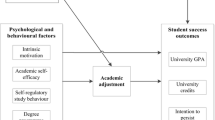Abstract
The MBA has always aroused controversy in the UK. The background to this and some explanations are presented, together with an analysis of what is perceived by some to be a crisis for MBA provision. Whilst the number of programmes has expanded, demand, particularly for full-time programmes, has weakened due in part to the recent recession. The paper offers explanations of these adjustments and some evidence that the MBA is gradually becoming a standard qualification for senior management. It is argued that what appears a crisis is an overdue adjustment of expectations. Graduation salary premia have declined as the supply of places and graduates has increased. As a consequence, most schools will experience pressures to reduce experience requirements and real fee levels. Increased customer price-consciousness will result in a greater focus on costs for business schools and their faculty. A brief history of the origins and evolution of the MBA in the USA and UK is provided, with an emphasis on the importance of the revised US model of the early 1960s for the subsequent success and upward drift of the MBA. A number of tensions and challenges in MBA provision are identified.
Similar content being viewed by others
References
AACSB (1966).The American Association of Collegiate Schools of Business (50th. Anniversary Commemorative Volume). Homewood, Ill.: Irwin.
AMBA (1992).MBAs: Salaries and Careers. London: The Association of MBAs.
Bain, G. (1990). ‘A Vocational Vortex’,The Times Higher Education Supplement, 23 February 1990, p.13.
Cheit, E.F. (1985). ‘Business Schools and their Critics’,California Management Review 27 (3): 43–62.
Cobban, A.B. (1988).The Mediaeval English Universities, Oxford and Cambridge to ca. 1500. Aldershot: Scolar.
Cohen, P. (1973).The Gospel According to the Harvard Business School. New York: Doubleday.
Constable, J., and McCormick, R. (1987).The Making of British Managers. London: BIM/CBI.
Council for National Academic Awards (1991).Review of the Master Of Business Administration. London: CNAA.
Economist (1992). ‘The Elusive Euro-manager’,The Economist, 7 November 1992, p. 109.
Economist (1994). The Flawed Education of the European Businessman’,The Economist, 4 June 1994, pp. 89–90.
Financial Times (1991a). ‘FT Survey: Management Education and Training’,Financial Times, 9 April 1991, pp. 15–20.
Financial Times (1991b). ‘Cold Climate Continues for MBA Graduates’,Financial Times, 26 June 1991, p.17.
Financial Times (1991c). ‘Reality Catches up with the Hyperbole’,Financial Times, 14 August 1991, p.10.
Financial Times (1994). ‘Initials that Stand for Main Board Advance’, titFinancial Times, 20 July 1994, p. 12.
Forrester, P.G. (1986).The British MBA. Cranfleld, Beds.: Cranfield Press.
FME (1994).Management Education In UK Business Schools 1993–2000; report of a survey of UK Business Schools and companies. Oxford: Foundation for Management Education.
Franks Report (1963).British Business Schools. London: British Institute of Management.
Gordon, R.A., and J.E. Howell (1959).Higher Education for Business. New York: Columbia University Press.
Greiner, L.E. (1981). ‘US Business Schools in the 1980s - a Negative Scenario’, in Cooper, C.L. (ed.),Developing Managers for the 1980s. London: The Macmillan Press, pp. 38–50.
Hayes, R.H., and W.J. Abernathy. (1980). ‘Managing our Way to Economic Decline’,Harvard Business Review, 58: (4, July–August) 67–77.
Independent on Sunday (1993). ‘The Rise of the Master Class’,The Independent on Sunday Supplement, 6 June 1993, pp. 14–16.
Locke, R.R. (1989).Management and Higher Education since 1940. Cambridge: CambridgeUniversity Press.
Locke, R.R. (1994). ‘Management Education in Europe: An Historian's View’. Paper presented at EFMD European Deans and Directors meeting, Bocconi University, Milan, Italy, January 1994.
Mangham, I.L., and Silver, M.S. (1986). ‘Management Training: Context and Practice’, in Pye, A. and Mangham, I.L. (eds.),The Making of British Managers: The Mangham Working Party Report. London: BIM/CBI.
Owen, T. (1970).Business School Programmes: The Requirements of British Industry. London: BIM.
Parsons, T., and Platt, G.M. (1973).The American University. Cambridge, Mass.: Harvard University Press.
Pierson, F. (1959).The Education of American Businessmen. New York: McGraw-Hill.
Porter, L., and McKibben, L. (1988).Management Education and Development: Drift or Thrust into the 21st Century? New York: McGraw-Hill.
Robinson, P. (1994).Snapshots from Hell. London: Nicholas Brealey.
Saxton, A., and Bampfylde, S. (1990).The MBA Question: Perceptions and Reality in the UK. London: Saxton and Bampfylde International
Weir, D.T.H. (1990). ‘The Boys from the B Schools’,The Times Higher Education Supplement, 29 June 1990, p.30
Wilson, J.F. (1992).The Manchester Experiment: A History of Manchester Business School 1965–90. London: Paul Chapman Publishing.
Author information
Authors and Affiliations
Rights and permissions
About this article
Cite this article
Lock, A.R. The future of the MBA in the UK. High Educ 31, 165–185 (1996). https://doi.org/10.1007/BF02390443
Issue Date:
DOI: https://doi.org/10.1007/BF02390443



